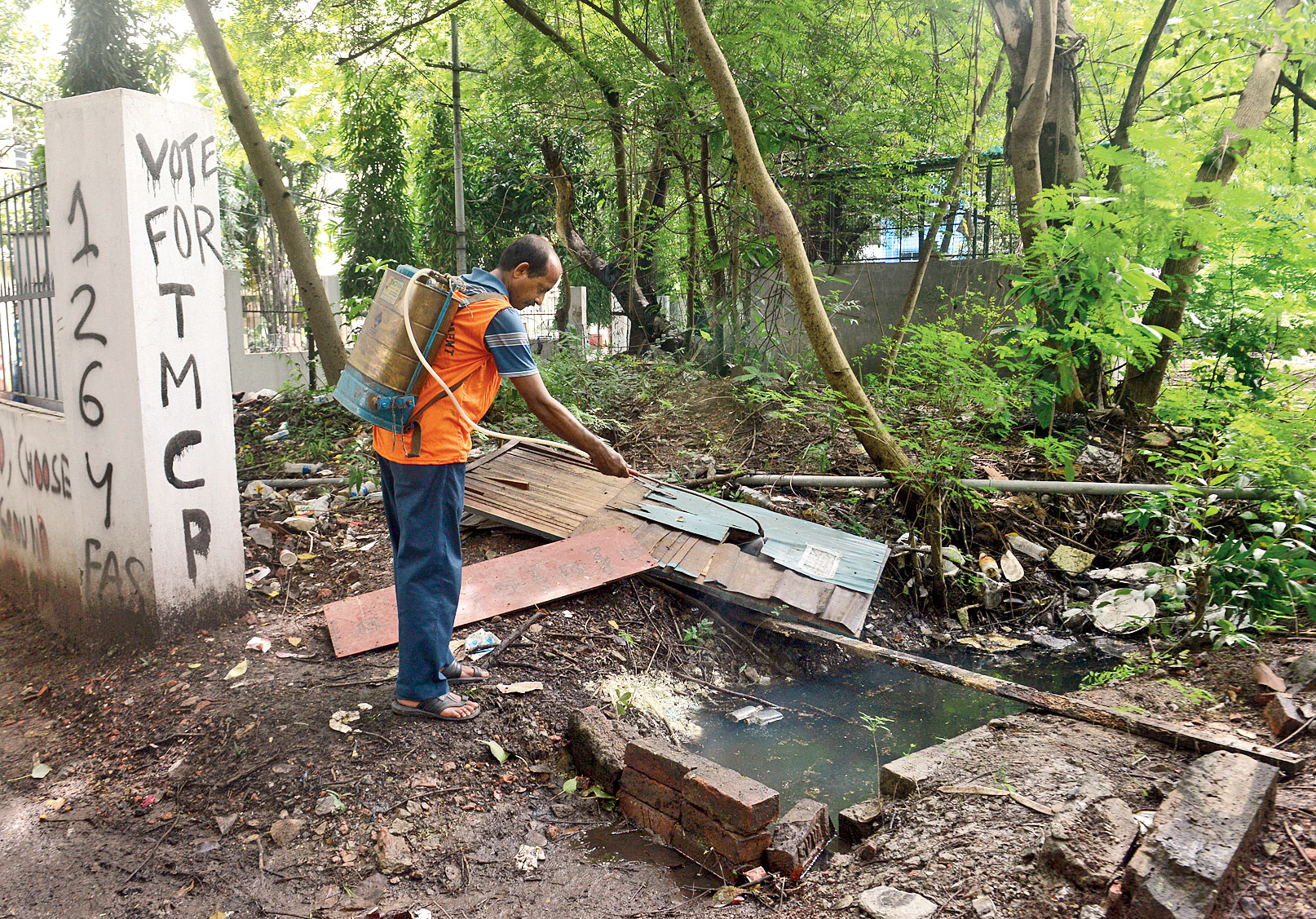The departmental heads and senior officials at Jadavpur University met last week to decide the steps to be taken to prevent a dengue outbreak on the campus this monsoon.
A Calcutta Municipal Corporation (CMC) team had on June 14 visited the campus and urged the authorities to take steps to prevent an outbreak of the disease, which is spread by the Aedes aegypti mosquito.
In 2017, a large number of people staying on the campus went down with fever. At least 20 had tested positive for dengue. Many students had left the hostel after the outbreak.
“The CMC team drew the university’s attention to the lapses in solid waste management on the campus,” a JU official said.
“The team said garbage was piling up on the campus. They took pictures of the garbage and shared them with us. The representatives said the garbage, if not disposed of, would lead to accumulation of water. The pools of water will act as perfect breeding sites of the Aedes aegypti mosquito,” the official said.
The dengue vector can breed in a spoonful of clear water and it takes a week since eggs are laid for adult mosquitoes to emerge. Civic officials and public health professionals urge people to drain stagnant water at least once a week to prevent a dengue outbreak.
JU registrar Snehamanju Basu admitted to the lapses on the campus and said she would soon write to the corporation requesting it to instal a compactor machine on the campus.
“The machine will plug the loophole in solid waste management,” Basu said. A compactor sucks water and air out of the waste and reduces its volume. That enables vehicles to carry greater volume of waste.
The civic team warned the university against letting water accumulate in buildings under construction.
A JU official said they were in touch with the local civic borough for regular spraying of larvicide on the campus.
“We have been advised to pour kerosene or diesel on the accumulated water. A layer of diesel or kerosene prevents oxygen from percolating down and kills the larvae,” he said.
The university has also requested borough officials to arrange for fogging.
Basu said the civic team would visit the campus again towards the end of this month to take stock of the situation.
Another university official said they had warned teachers and students against indiscriminate dumping of coffee cups and green coconut shells.
“The cups or shells should be dumped in designated zones. These cups or shells become mosquito breeding sites if water accumulates in them,” the official said.
Basu said she had formed a committee, led by her, to keep an eye on the steps being taken to prevent dengue.
A cleanliness drive is being undertaken on the hostel campuses and staff quarters, she said.











